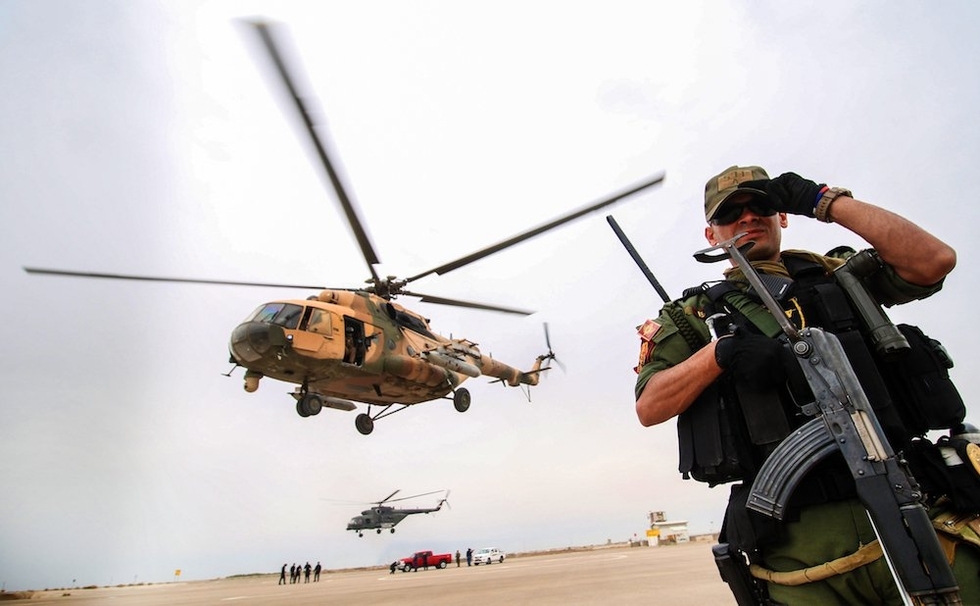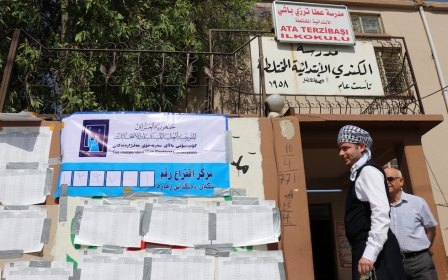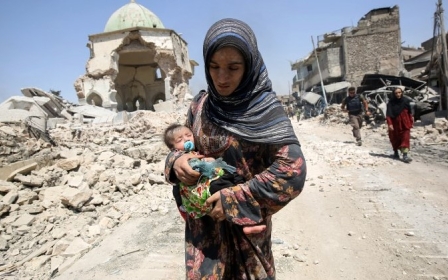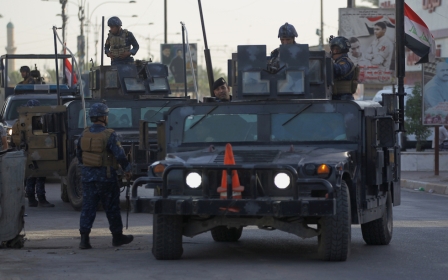Iraq's Basra rocked by protests after demonstrator killed

Iraqis took to the streets of Basra for the fourth straight day on Wednesday, protesting unemployment, lack of services and the killing of a demonstrator by the security sevices.
Three other people were wounded when police opened fire on protestors leaving one dead on Sunday, Karim Shuak, a member of Basra's provincial council, told AFP.
He described the demonstrators as "youths demanding solutions to the problem of unemployment that has deteriorated because of the inaction of the federal government".
The protesters had been blocking the road leading to West Qurna, home of the largest oil fields in Iraq, in an attempt to make the government listen to their concerns. Foreign oil companies have reportedly moved senior staff out of the area over fears that protests could escalate into violence.
Hussam Abulhil, a head of the Bani Mansour tribe to which the slain 30-year-old protester belonged, said they wanted his killer to face justice and called for the sacking of Basra's security chief.
Southern Iraq's Basra has long suffered from power cuts, despite being responsible for around 70 percent of Iraq's oil production. Racketeering and a network of bribery has led to high murder rates in Basra city. Unemployment across Iraq is officially 10.8 percent.
One video taken by a demonstrator appeared to show protesters attempting to storm an oil facility:
Anger over the iniquities in the Basra oil sector led protesters on Tuesday to call for the dismissal of foreign workers and the hiring of locals, according to Saudi daily Arab News.
“We want to force the government to listen to our demands and respond to them,” one of the protest organisers told the newspaper.
“We will paralyse the movement of oil companies."
A 'political aspect'
Iraq Prime Minister Haider al-Abadi has sent out mixed messages over the demonstrations.
While he promised an investigation into the death of the protester, and said he supported the "right to protest peacefully", he also warned on Tuesday that there was a "political aspect" that was attempting to take over the protests.
Basra has faced summer temperatures of higher than 50 degree celsius, a factor that Abadi said made the situation in the city "special".
He added that Iran, which used to provide 1,200 megawatts of electricity to the province, was experiencing a "load on the electrical grid" and as a result was only providing "5-10 percent of the amount".
"This has affected us," he said.
A statement released by the government on Tuesday said that the cabinet had "approved measures to improve the delivery of essential public services in Basra province, with a focus on improving the supply of electricity to homes and businesses."
Further complicating matters in Iraq has been the failure to form a government since elections in May.
Complaints of voter fraud have led to a recount which prevents the formation of a government until a final result is ratified.
As it stands, the biggest winner in the election was the Sairoun Alliance, a coalition of Shia Islamists and communists, who ran on an anti-corruption platform.
New MEE newsletter: Jerusalem Dispatch
Sign up to get the latest insights and analysis on Israel-Palestine, alongside Turkey Unpacked and other MEE newsletters
Middle East Eye delivers independent and unrivalled coverage and analysis of the Middle East, North Africa and beyond. To learn more about republishing this content and the associated fees, please fill out this form. More about MEE can be found here.




